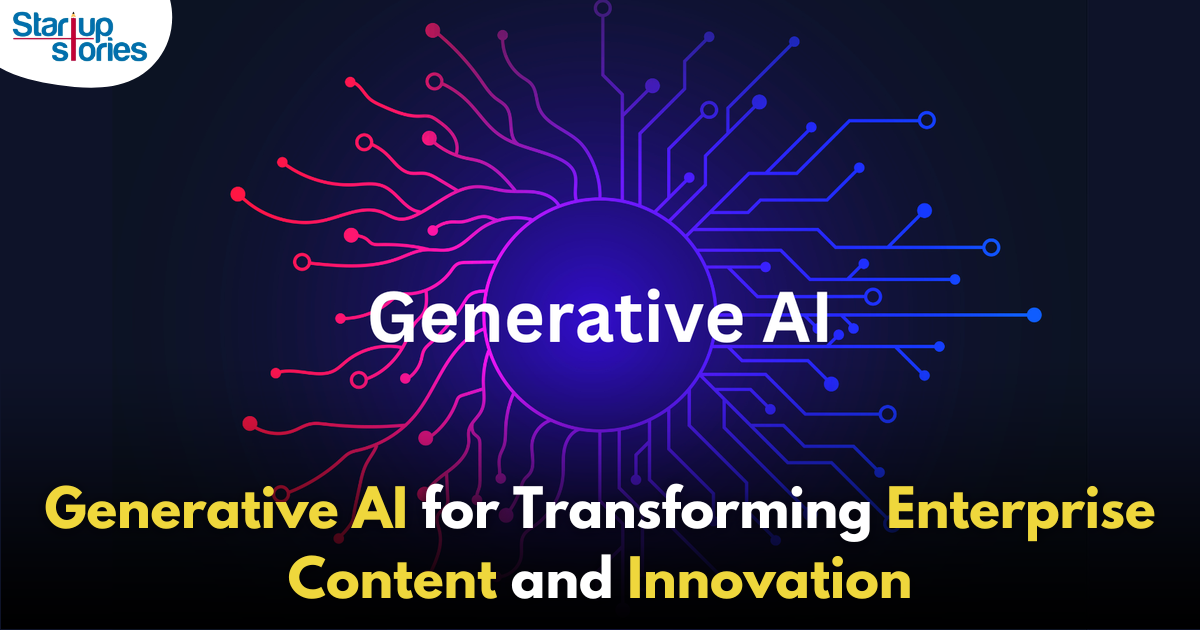Latest News
Harnessing Generative AI for Enterprise Content Production and Innovation!

The conversation surrounding the integration of generative AI into business strategies often centers on two critical questions for high-level decision-makers, such as Chief Marketing Officers (CMOs) and Chief Information Officers (CIOs): “How can generative AI benefit our business?” and “When will we see returns on our investment?” Despite many organizations running various pilot programs, only a small fraction has fully harnessed the potential of AI technology. A recent digital trends report indicates that only 25% of senior executives believe their companies have successfully integrated generative AI with their digital transformation and customer experience goals. Meanwhile, 45% acknowledge that this integration is still in progress, and nearly a third have yet to take substantial action.
Optimism Among Marketing Leaders
Despite these challenges, marketing leaders are optimistic about generative AI’s role in addressing content-related obstacles. Notably, India leads the Asia Pacific region in generative AI adoption, with a Deloitte report revealing that 83% of employees actively use GenAI tools. This trend is largely driven by younger, tech-savvy users who are experiencing significant productivity gains; Indian GenAI users save an average of 7.85 hours weekly. As enterprises continue to adopt generative AI, they can expect transformative efficiency improvements alongside challenges related to upskilling employees and adapting to rapid digital evolution.
Operationalizing Generative AI for Content Personalization
For CMOs aiming to enhance content personalization, the volume and variety of content remain significant hurdles. Global businesses must manage marketing efforts across diverse regions, yet many regional teams lack the resources necessary for effective localization. With the high demand for updated content across social media and paid channels, marketers are advised to refresh their content as frequently as biweekly.
Traditional marketing structures often struggle to keep pace with the soaring demand for fresh and engaging content. The current approach, which relies on separate creative units and agencies, frequently lacks the speed, volume, and cost efficiency required in today’s fast-paced environment. Generative AI presents a transformative opportunity, promising productivity improvements ranging from 10 to 100 times for specific workflows. These gains could enhance campaign performance, accelerate time-to-market, and reduce costs. However, the real challenge lies in operationalizing generative AI for enterprise-wide content creation.
Five Strategies to Transition from Experimentation to Real-World Application
To unlock the full potential of generative AI, enterprises must modernize their content strategies with a cohesive and strategic vision:
- Enhance Creative Teams’ Capabilities: Generative AI tools can significantly boost productivity by streamlining ideation processes and tasks like image editing. By integrating AI models that fit seamlessly into existing workflows, companies can minimize disruptions while enhancing efficiency.
- Empower Marketers to Create and Remix Content: Traditionally, marketers prepare campaign briefs for creative teams to execute. AI-driven creative tools can streamline this process by enabling marketers to adapt existing content independently. This self-service approach allows regional teams to quickly localize and refine materials tailored to their specific markets.
- Automate Repetitive Tasks: Companies often expend vast resources creating content variations and managing post-production editing. AI-powered tools can simplify this process by generating numerous campaign assets tailored to different channels and audiences. By integrating generative and creative APIs, businesses can automate routine tasks, freeing up resources for higher-value work.
- Maintain Brand Consistency: To successfully scale generative AI efforts, generated content must align with the brand’s voice and style. Businesses should seek AI solutions that allow customization while ensuring that generated content consistently reflects their brand identity.
- Select Technology Built for Business Safety: To confidently integrate AI solutions, enterprises need to mitigate legal and security risks. It is essential to prioritize AI models that protect intellectual property rights, avoid third-party copyright infringements, and safeguard data privacy.
By adopting these strategies, organizations can effectively transition generative AI from experimentation to production, reaping substantial benefits in efficiency and creativity. With demand for content expected to increase fivefold in the coming years, those who operationalize generative AI today will be best positioned to leverage this transformative technology.
Conclusion
Generative AI is poised to revolutionize enterprise content production by enhancing creativity, improving efficiency, and delivering personalized experiences at scale. As businesses navigate the complexities of integrating this technology into their operations, it is crucial for leaders to remain focused on strategic implementation while addressing challenges related to workforce adaptation and technological integration. By embracing generative AI now, organizations can not only meet the growing demands of their customers but also gain a competitive edge in an increasingly digital landscape.
Latest News
Zerodha Reports 23% Profit Decline in FY25 as Revenues Miss Target

Zerodha experienced a challenging FY25, as its revenue fell 11.5% to ₹8,847 crore and net profit dropped 22.9% to ₹4,237 crore. This decline reflects tougher regulatory conditions, lower trading volumes, and increased operational costs in the brokerage market, all of which impacted core earning segments for the company.
Despite these headwinds, Zerodha improved its operating margin to 63.78% and built up significant cash reserves, reporting ₹22,679 crore in bank balances. Salary expenses and director remuneration increased, but disciplined cost controls helped the company maintain profitability and a debt-free balance sheet. The drop in active clients and increased compliance costs further contributed to the profit contraction.
Looking ahead, Zerodha’s resilience is supported by its robust cash position and operational efficiency. Maintaining steady margins, diversifying product offerings, and investing in technology positions the company to withstand future regulatory fluctuations and changing market sentiment reinforcing its status as one of India’s leading brokerage firms.
Latest News
Zoho Pay Debuts as India’s New UPI Challenger, Taking on PhonePe, Paytm, and Google Pay

Zoho Corporation has expanded its fintech portfolio with the launch of Zoho Pay, a UPI-based payments app built to challenge India’s top digital payment giants such as PhonePe, Paytm, and Google Pay. The new app supports peer-to-peer transfers, bill payments, QR-based transactions, and merchant settlements in a streamlined interface. Available as both a standalone app and an integrated feature inside Zoho’s privacy-driven messenger Arattai, Zoho Pay enables users to handle chats and payments in one platform, emphasizing data privacy and Made-in-India innovation.
Through seamless integration with Arattai, Zoho Pay allows users to send or request payments, split expenses, and conduct UPI-based transactions directly in their chat windows. Users can link bank accounts, scan dynamic QR codes, and receive audio confirmations of payments, ensuring speed and security. This design mirrors the simplicity of India’s leading UPI apps but is powered by Zoho’s non-advertising, privacy-first model. The integration aligns with Zoho’s mission to build a self-reliant digital ecosystem, where messaging and money management coexist securely.
In the competitive digital payments market, Zoho Pay differentiates itself through its tight business software integration with apps like Zoho Books, Zoho Payroll, and Zoho Commerce, offering small businesses unified access to payments, billing, and accounting. The company is also expanding its reach with POS devices for merchants featuring UPI QR, card payments, and instant reconciliation tools. With founder Sridhar Vembu’s vision of a ‘Chat + Pay’ ecosystem, Zoho Pay reflects a bold step toward redefining India’s fintech scene with a secure, ad-free, and locally developed alternative to global payment platforms.
Latest News
Meta Expands AI-Powered Reels Translation to Hindi and Portuguese, Enhancing Global Creator Reach

Meta has expanded its AI-powered translation feature for Reels to include Hindi and Portuguese, joining English and Spanish in empowering creators to reach a broader global audience on Instagram and Facebook. Originally launched in August 2025 with support for English and Spanish, this update now allows creators to seamlessly translate and dub their short videos, breaking language barriers across some of the largest Reels markets worldwide. The AI technology mimics the creator’s voice tone and even offers lip-syncing to ensure the translated videos feel natural and engaging for viewers.
This enhancement is especially significant for India, the largest market for Facebook and Instagram, where over 600 million people speak Hindi. Content creators who are not fluent in Hindi can now easily access this vast audience, increasing their reach and engagement across diverse linguistic groups. To maintain transparency, all translated Reels are clearly labeled with “Translated with Meta AI,” and viewers can choose to switch translations on or off based on their preference.
In addition to voice dubbing, Meta is developing features to translate captions and text stickers on Reels, making content more accessible even without sound. These AI translation tools are available free for eligible public Instagram accounts and Facebook creator profiles with over 1,000 followers. This innovation reinforces Meta’s commitment to fostering cross-cultural content sharing and enhancing creators’ ability to connect with audiences around the world through short-form videos.














binance code
April 3, 2025 at 7:24 am
Your point of view caught my eye and was very interesting. Thanks. I have a question for you.
open binance account
June 26, 2025 at 12:48 pm
Can you be more specific about the content of your article? After reading it, I still have some doubts. Hope you can help me. https://www.binance.com/pt-PT/register?ref=DB40ITMB
binance Empfehlung
July 2, 2025 at 8:04 pm
Thanks for sharing. I read many of your blog posts, cool, your blog is very good.
GO88
November 6, 2025 at 5:40 pm
Tham gia cộng đồng game thủ tại Go88 để trải nghiệm các trò chơi bài, poker phổ biến nhất hiện nay.
谷歌外推
November 9, 2025 at 2:36 pm
采用高效谷歌外推策略,快速提升网站在搜索引擎中的可见性与权重。谷歌外推
MM88
November 11, 2025 at 8:48 am
Với giao diện mượt mà và ưu đãi hấp dẫn, MM88 là lựa chọn lý tưởng cho các tín đồ giải trí trực tuyến.
ios超级签
November 13, 2025 at 6:35 am
苹果签名,苹果超级签平台,ios超级签平台ios超级签苹果企业签,苹果超级签,稳定超级签名
Kuwin
November 15, 2025 at 9:32 am
kuwin sở hữu kho game đa dạng từ slot đến trò chơi bài đổi thưởng, mang đến cho bạn những giây phút giải trí tuyệt vời.
J88
November 20, 2025 at 9:50 pm
Đến với J88, bạn sẽ được trải nghiệm dịch vụ cá cược chuyên nghiệp cùng hàng ngàn sự kiện khuyến mãi độc quyền.
iwin
November 21, 2025 at 5:43 am
iwin – nền tảng game bài đổi thưởng uy tín, nơi bạn có thể thử vận may và tận hưởng nhiều tựa game hấp